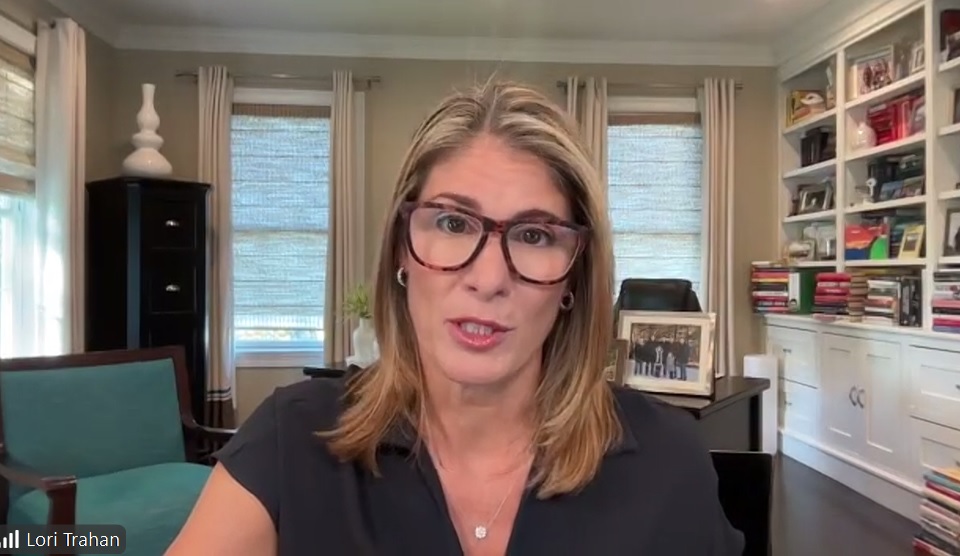Health
Massachusetts Residents Face Rising Health Insurance Premiums

Residents of Massachusetts are bracing for significant increases in health insurance premiums in 2026 if Congress does not extend crucial subsidies. The enhanced premium tax credits, which have provided financial relief to many during the COVID-19 pandemic, are set to expire at the end of the year under the 2022 Inflation Reduction Act. Open enrollment for the Massachusetts Health Connector begins on November 1, and tens of thousands of individuals could lose access to some or all of their subsidies.
Impending Premium Increases
The situation has intensified as U.S. Senate Democrats recently rejected several stopgap spending measures aimed at reopening the government, which has been shut down since October 1. Their focus remains on preserving the enhanced premium tax credits that many rely on for affordable health coverage. According to the Massachusetts Health Connector, “[m]any people will still qualify for financial help, but the amount will be smaller.”
Starting on January 1, households earning above 400% of the federal poverty level—approximately $62,600 for individuals and $128,400 for families of four—will no longer qualify for heavily subsidized ConnectorCare coverage. Members in this income bracket will need to explore unsubsidized health plan options, which may lead to significantly higher out-of-pocket costs.
“This week, people can start to access information regarding their premium increases through their online member portal, with physical mail expected to follow soon,” said Audrey Morse Gasteier, Executive Director of the Health Connector, during a press conference hosted by Congresswoman Lori Trahan. “As we approach 2026, many will realize that the tax credits providing vital financial support for their health care will no longer be available.”
Potential Impact on Vulnerable Populations
ConnectorCare members earning between 300% and 400% of the federal poverty level will continue to receive subsidized care until the end of 2026, according to the Connector. However, approximately 36,000 members who are noncitizens but legally present in the U.S. could face immediate consequences from the One Big Beautiful Bill Act. These members will lose eligibility for subsidized coverage starting January 1, regardless of whether enhanced premium tax credits are extended.
“We cannot afford to kick the can down the road as some political leaders demand,” Trahan stated. “Every day that they stall, they gamble with people’s health and financial security.” In a recent interview, Vice President JD Vance commented that the tax credits “actually go to a lot of waste and fraud within the insurance industry.” Meanwhile, U.S. Senate Majority Leader John Thune has indicated discussions with Democratic leaders about a potential deal to extend the tax credits with certain reforms included.
The enhanced premium tax credits were introduced in 2021, resulting in a surge in enrollment in the Affordable Care Act Marketplace from about 11 million to over 24 million, according to data from the Kaiser Family Foundation (KFF).
During the press conference, Dr. Manju Mahajan, a family medicine physician at UMass Memorial Medical Center, shared a distressing example of a patient who is a single mother managing two jobs. Currently, her premium is $75 per month, but without the tax credits, it could escalate to $500. “She told me flat out that she would need to drop her coverage,” Mahajan said. “That means no routine health checks or necessary medications, and her situation is not unique; thousands of families will face similar challenges if these credits disappear.”
The Massachusetts Health Connector highlighted the severe financial implications in an infographic, demonstrating how a hypothetical couple aged 62 earning $85,000 could see their monthly premium rise from $892 to $2,096. Similarly, a 57-year-old couple in Worcester earning the same amount could see their premium increase from $528 to $1,687.
Valerie Fleishman, Executive Vice President and Chief Innovation Officer at the Massachusetts Health and Hospital Association, warned that eliminating these tax credits would significantly impact patients and the healthcare system. “If these credits expire, 65,000 Massachusetts residents could lose their coverage over the next 14 months, and hundreds of thousands more would see costs rise, making care increasingly unattainable,” she stated. “Delaying or forgoing care can lead to severe health issues, ultimately burdening emergency services and increasing costs for everyone.”
The Health Connector is preparing for an influx of inquiries from members as they become aware of the upcoming premium hikes. “When health insurance premiums rise, it creates significant distress and anxiety for families trying to manage their budgets,” Morse Gasteier noted. “We anticipate heightened call volumes from individuals eager to understand the changes and their implications.”
The ongoing discussions in Congress will be critical in determining the future of health coverage for many Massachusetts residents as they navigate these upcoming challenges.
-

 Business1 week ago
Business1 week agoIconic Sand Dollar Social Club Listed for $3 Million in Folly Beach
-

 Politics1 week ago
Politics1 week agoAfghan Refugee Detained by ICE After Asylum Hearing in New York
-

 Health1 week ago
Health1 week agoPeptilogics Secures $78 Million to Combat Prosthetic Joint Infections
-

 Science1 week ago
Science1 week agoResearchers Achieve Fastest Genome Sequencing in Under Four Hours
-

 Lifestyle1 week ago
Lifestyle1 week agoJump for Good: San Clemente Pier Fundraiser Allows Legal Leaps
-

 Health1 week ago
Health1 week agoResearcher Uncovers Zika Virus Pathway to Placenta Using Nanotubes
-

 World1 week ago
World1 week agoUS Passport Ranks Drop Out of Top 10 for First Time Ever
-

 Business1 week ago
Business1 week agoSan Jose High-Rise Faces Foreclosure Over $182.5 Million Loan
-

 World1 week ago
World1 week agoRegional Pilots’ Salaries Surge to Six Figures in 2025
-

 Science1 week ago
Science1 week agoMars Observed: Detailed Imaging Reveals Dust Avalanche Dynamics
-

 Entertainment1 week ago
Entertainment1 week agoJennifer Lopez Addresses A-Rod Split in Candid Interview
-

 Top Stories1 week ago
Top Stories1 week agoChicago Symphony Orchestra Dazzles with Berlioz Under Mäkelä









